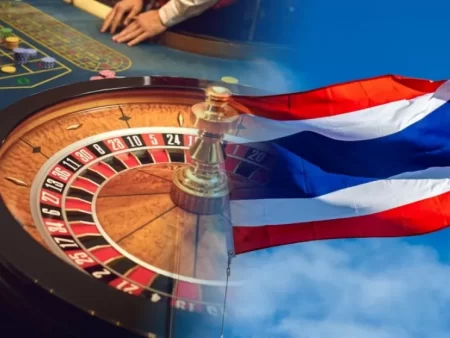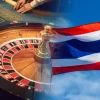The potential for integrated resorts (IRs) in Bangkok, Thailand, is enormous, with an estimated annual revenue generation of between $2.5 billion and $3 billion, potentially reaching up to $5 billion. This analysis, as highlighted by JP Morgan, underscores the significant role of foreign tourism in driving this revenue, given Thailand’s popularity as a global tourist destination.
Key Demographics Driving Revenue

The investment bank’s report identifies three primary demographics that would fuel the financial success of these integrated entertainment complexes:
- Local Patrons in Bangkok – Residents who may contribute to the revenue by frequenting the IRs.
- Regional Thai Patrons – Visitors from across Thailand, especially from nearby regions who might be drawn to the unique attractions in Bangkok.
- International Tourists – Foreign visitors, who are expected to be the largest revenue contributors due to their higher spending capacity.
These IRs would attract a blend of both domestic and international clientele, making Bangkok a hub for entertainment and gambling tourism.
Casinos Expected to Dominate Revenues
Casinos, despite being projected to occupy only about 5 percent of the total IR floor space, are anticipated to contribute a staggering 90 percent of the overall revenue. Of this, more than 50 percent is expected to come from foreign tourists, whose spending on gambling activities is considerably higher than that of local and regional patrons.
Comparing Bangkok’s Potential to Singapore’s IR Model
JP Morgan draws comparisons between Bangkok’s prospective IR market and that of Singapore, citing similarities in population and urban characteristics. Singapore’s IRs, such as Marina Bay Sands and Resorts World Sentosa, have become iconic examples of successful casino operations, blending gambling facilities with luxurious accommodations and entertainment options.
However, there are notable differences that could affect Bangkok’s revenue generation in comparison to Singapore, such as:
- Diverse Tourist Attractions – Thailand, renowned for its cultural landmarks, beaches, and culinary experiences, may not see as high a conversion rate of tourists into casino patrons as Singapore, which is known for its well-integrated entertainment options.
- Lower Income Levels Among Thai Locals – Unlike Singaporeans, who have a relatively high income per capita, Thai locals may have a lower spending capacity on casino entertainment. This income disparity could reduce the participation of Thai locals in casino-related activities.
- Potential Entrance Fees – The Thai government may impose a higher entrance fee for locals to access casinos, which could impact the penetration rate among domestic patrons. Singapore employs a similar approach, charging a levy for locals, which has contributed to the success of its IRs.
Projected Revenue Breakdown in Bangkok IRs
To better understand the projected revenue distribution among the IRs in Bangkok, here’s a breakdown:
| Category | Estimated Contribution |
|---|---|
| Casino | 90% of total revenue |
| Non-Gaming Activities | 10% of total revenue |
| Revenue from Foreign Tourists | > 50% of casino revenue |
These projections align with Thailand’s standing as a major international tourism destination, drawing visitors whose primary interest might not be gambling but who may still indulge in it during their stay.
Casino Legislation and International Interest
The Thai government is considering the introduction of a casino bill, currently in the draft stage, that would establish a legal framework for casinos in the country. This legislation could pave the way for international investors, as it aims to attract major gaming corporations by offering 30-year operating licenses.
Interest from Global Gaming Giants
Several international gaming giants have expressed interest in the Thai market, drawn by the potential to tap into a new and lucrative market. Key players include:
- Las Vegas Sands – Known for iconic casinos like The Venetian, with expertise in creating expansive IRs.
- MGM Resorts – A major global player, bringing a wealth of experience in running successful casino resorts.
- Wynn Resorts – Famed for its luxurious casino resorts, particularly in Macau and Las Vegas.
- Galaxy Entertainment Group – A dominant player in Macau’s casino industry, with plans for expansion into other markets.
Potential Economic Impact of Thailand’s IRs
The development of IRs in Bangkok would not only enhance the country’s tourism sector but could also drive economic growth through job creation and increased tax revenue. The entertainment complexes are expected to include high-end accommodations, dining, shopping, and entertainment venues in addition to casino floors, broadening their appeal to a wide range of visitors.
Social and Economic Considerations
However, the economic benefits come with challenges, such as the social impact of gambling and the need for regulatory frameworks to manage these issues effectively. Additionally, Thailand may need to establish measures to mitigate problem gambling and ensure responsible gaming practices are upheld.
Conclusion
JP Morgan’s analysis paints an optimistic picture of Thailand’s potential in the IR sector, highlighting Bangkok’s opportunity to capitalize on international tourism and establish itself as a premier destination for entertainment and gambling in Southeast Asia. Although challenges like local spending power and regulatory frameworks may shape the market, the presence of global casino operators could signal a bright future for Thailand’s IR industry.
This burgeoning market could eventually parallel the successes seen in Singapore, transforming Bangkok into a vibrant entertainment hub that could redefine tourism in Thailand. As the casino legislation progresses, the development of these IRs could be an economic boon for Thailand, further diversifying the country’s revenue sources beyond traditional tourism avenues.












